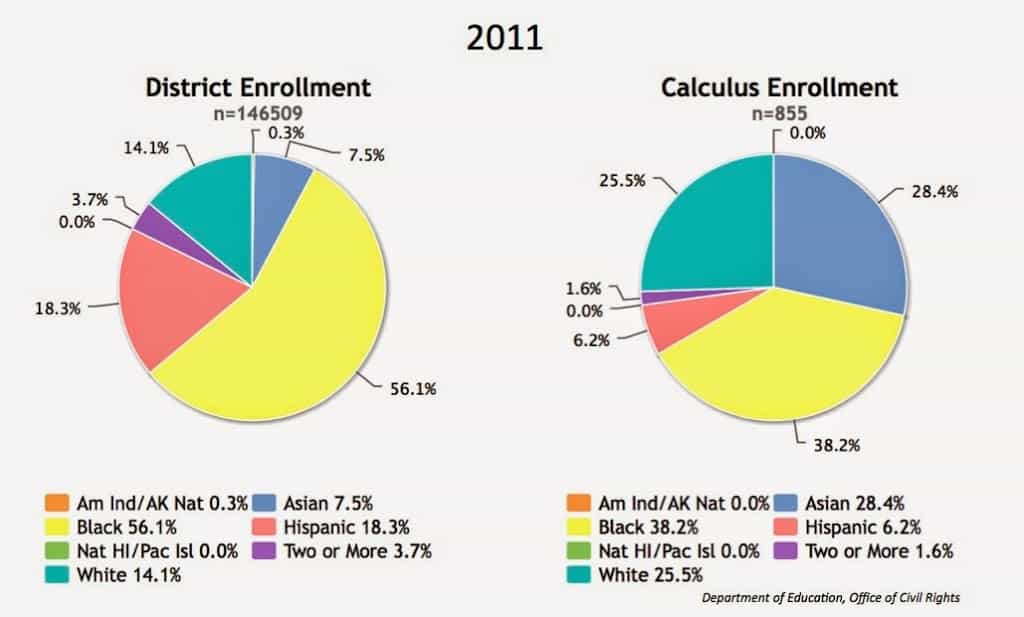We have long known that disparities in access to early childhood education lead to an achievement gap later in school and in life. Now we know that access is not the only disparity that needs to be addressed. According to a new study by the Department of Education’s Office for Civil Rights (OCR), Black students are overwhelmingly more likely to be suspended or expelled from pre-school programs. This unfortunate trend follows them throughout their education. Suspended students are more likely to be suspended again, more likely to repeat grades and more likely to fail to graduate. This isn’t just a nationwide trend; it’s a major problem here in Philadelphia.
The report found that while Black children make up less than 20% of the nationwide public and charter pre-school population, they account for 42% of the students suspended once and 48% percent of the students under five with multiple suspensions. PCCY’s analysis has found no reports of pre-school suspensions in Philadelphia in 2011, but that does not mean we are free from a discipline disparity. Newsworks reports that in Pennsylvania, 22% of Black male students and 13% of Black female students have been suspended, while only 5% and 2% of white boys and girls, respectively, have been suspended. Both of these figures are worse than the national averages. Despite accounting for 56% of the School District of Philadelphia’s student body, Black students receive 74% of in-school suspensions and 72% of out-of-school suspensions. While the roughly 15% disparity in out-of-school suspensions has stayed constant for the last two years, the 18% gap in in-school suspensions has skyrocketed from just 2% in 2009.
While we cannot yet pinpoint the cause of this discipline disparity, we do not need to look far to see the effects of racial isolation and racial inequity in high quality academic programs. PCCY also found by examining the data that 57% of all Black students in the country do not have access to a full high school course load of Algebra I, Geometry, Algebra II, Calculus, Biology, Chemistry and Physics. Though more than half of the School District of Philadelphia’s students are Black, according to PCCY’s review of the new data, only 38% of students enrolled in Calculus are Black. Hispanic students, who make up 18% of the District, take just 6% of Calculus seats.

